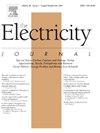实践中的法国市场设计:2022年能源危机的启示
IF 2.2
Q1 Social Sciences
引用次数: 0
摘要
2005年至2021年间,法国利用非化石能源发电(平均491太瓦时/年)的发电量超过了其国内总消费量(481太瓦时/年)。因此,就总盈余而言,法国电力部门应该几乎没有受到2022年能源危机期间化石燃料价格飙升的影响,如果有的话。然而,在实践中,法国政府花费了数十亿欧元补贴电力消费者,运营整个核电机组的现有公用事业公司录得迄今为止最糟糕的年度财务业绩,总电力进口超过出口,这是40多年来的第一次。尽管这些结果在很大程度上可以归因于运气不好,但通过更好的市场设计和公共政策,它们本可以在多大程度上得到缓解,这是一个悬而未决的问题。本文认为,现有政策通过其隐含的激励机制来分担和管理长期风险,在法国如何度过能源危机中发挥了关键作用。改革长期风险分担机制一直是最迫切需要解决的问题。然而,展望未来,更新短期批发市场设计对于更好地支持低成本和可靠的能源转型可能会变得越来越重要。本文章由计算机程序翻译,如有差异,请以英文原文为准。
French market design in practice: Some lessons from the 2022 energy crisis
Between 2005 and 2021, France has generated more electricity from fossil-free resources (491 TWh/year on average) than its gross domestic consumption (481 TWh/year). Therefore, in terms of total surplus, the French electricity sector should have been barely hit, if at all, by the surge in fossil fuel prices during the 2022 energy crisis. In practice, however, the French government spent billions of euros in subsidies to electricity consumers, the incumbent utility – who operates the whole nuclear fleet – recorded its worst yearly financial result to date, and total electricity imports exceeded exports for the first time in more than 40 years. Although these outcomes can largely be attributed to bad luck, the extent to which they could have been mitigated through better market design and public policies is an open question. This article argues that existing policies, through their implied incentives to share and manage long-term risks, played a critical role in how France fared during the energy crisis. Consistently, reforming long-term risk-sharing mechanisms has emerged as the most pressing issue to address. Looking forward, however, updating short-term wholesale market design will likely prove increasingly important to better support a low-cost and reliable energy transition.
求助全文
通过发布文献求助,成功后即可免费获取论文全文。
去求助
来源期刊

Electricity Journal
Business, Management and Accounting-Business and International Management
CiteScore
5.80
自引率
0.00%
发文量
95
审稿时长
31 days
期刊介绍:
The Electricity Journal is the leading journal in electric power policy. The journal deals primarily with fuel diversity and the energy mix needed for optimal energy market performance, and therefore covers the full spectrum of energy, from coal, nuclear, natural gas and oil, to renewable energy sources including hydro, solar, geothermal and wind power. Recently, the journal has been publishing in emerging areas including energy storage, microgrid strategies, dynamic pricing, cyber security, climate change, cap and trade, distributed generation, net metering, transmission and generation market dynamics. The Electricity Journal aims to bring together the most thoughtful and influential thinkers globally from across industry, practitioners, government, policymakers and academia. The Editorial Advisory Board is comprised of electric industry thought leaders who have served as regulators, consultants, litigators, and market advocates. Their collective experience helps ensure that the most relevant and thought-provoking issues are presented to our readers, and helps navigate the emerging shape and design of the electricity/energy industry.
 求助内容:
求助内容: 应助结果提醒方式:
应助结果提醒方式:


